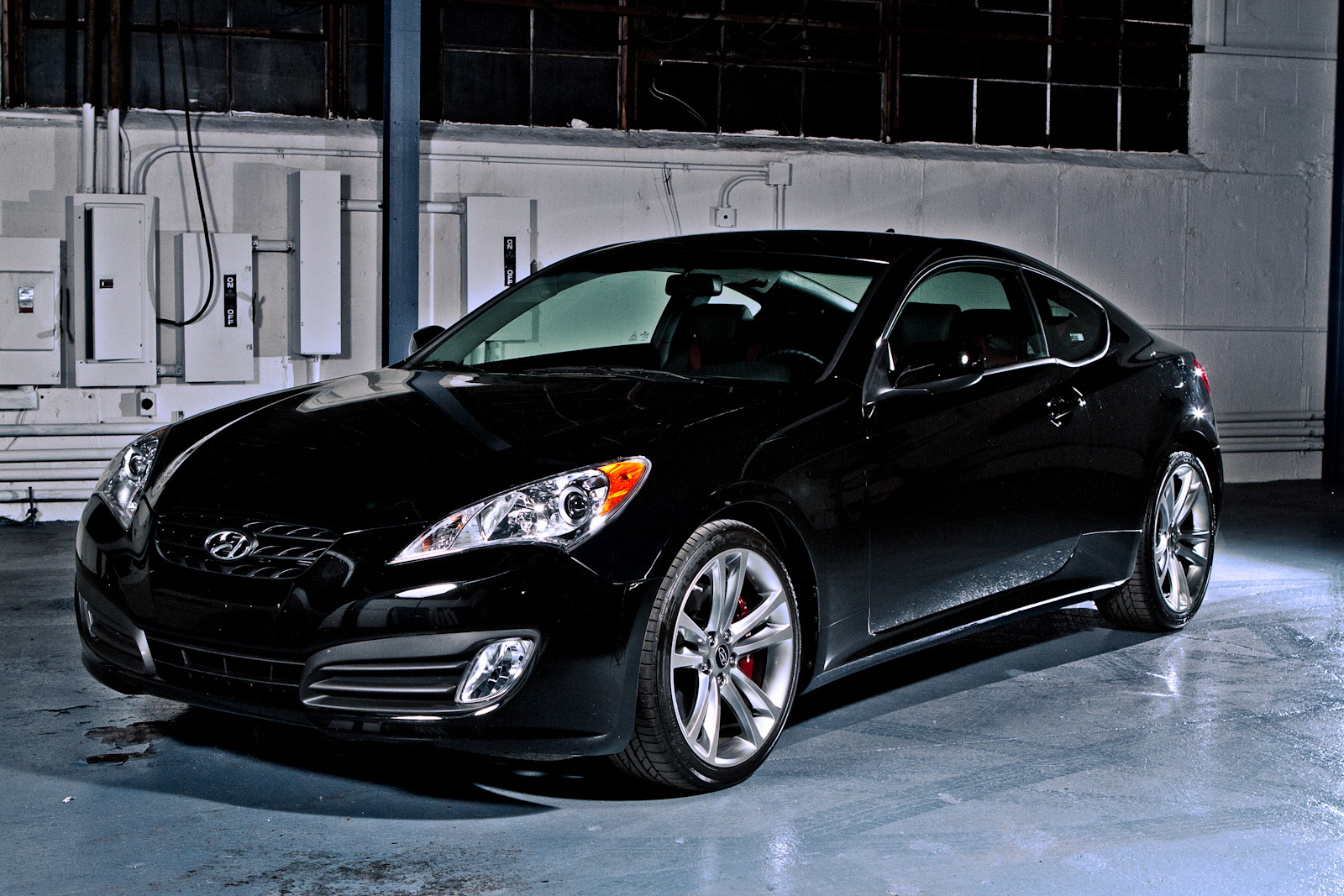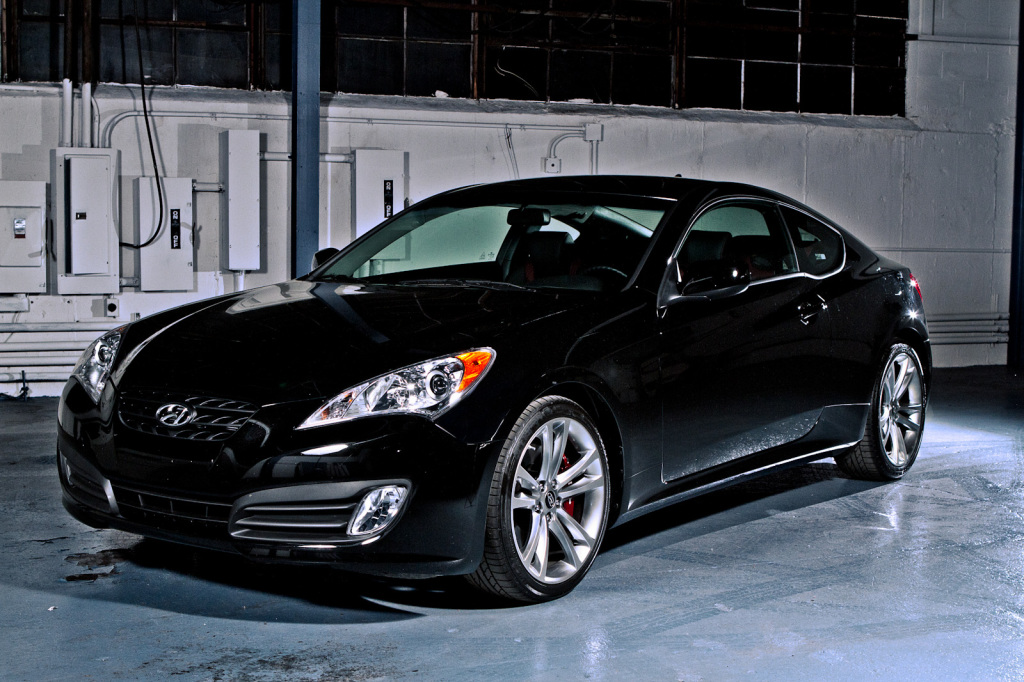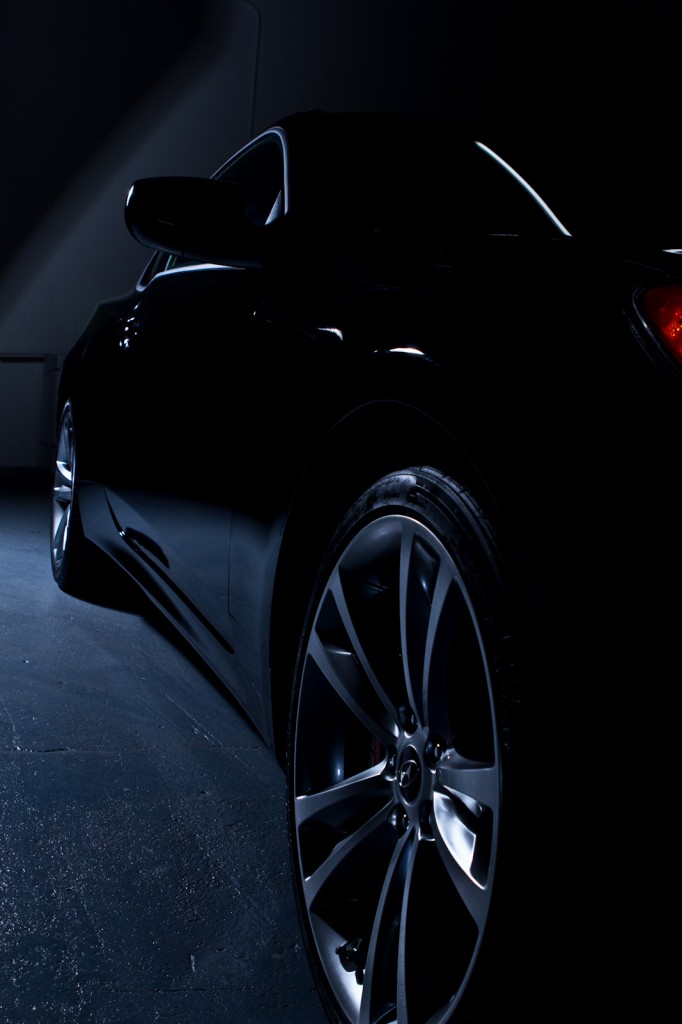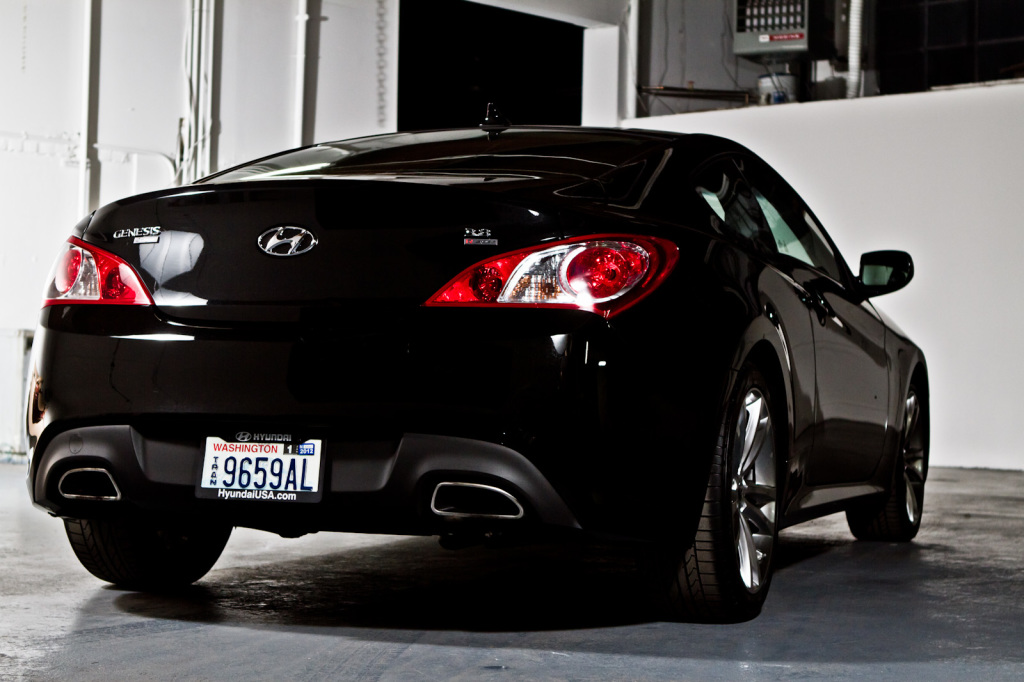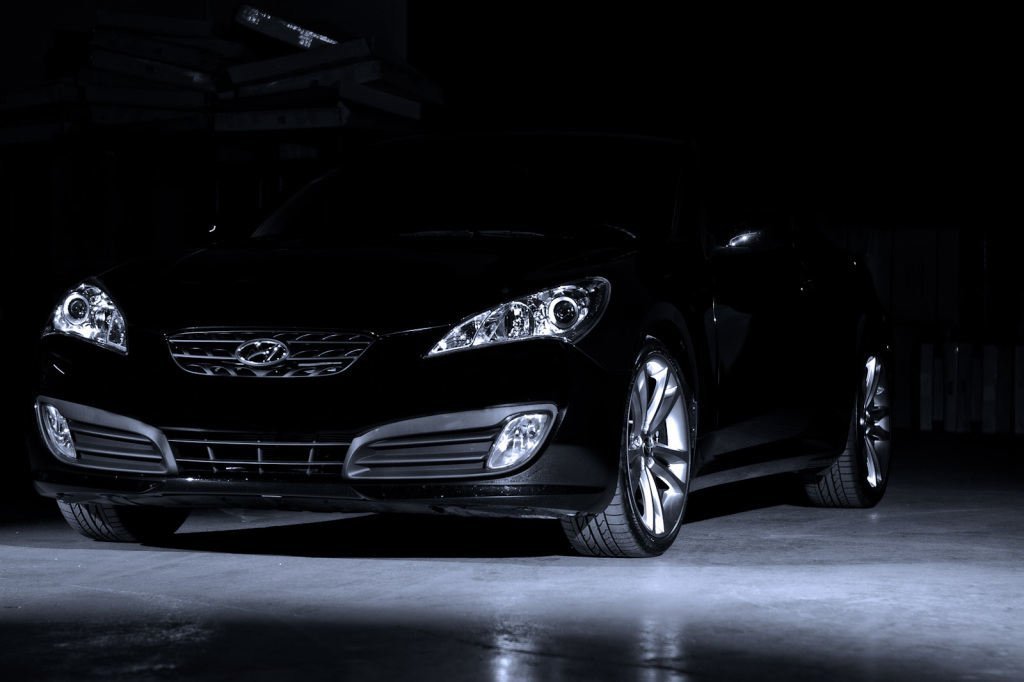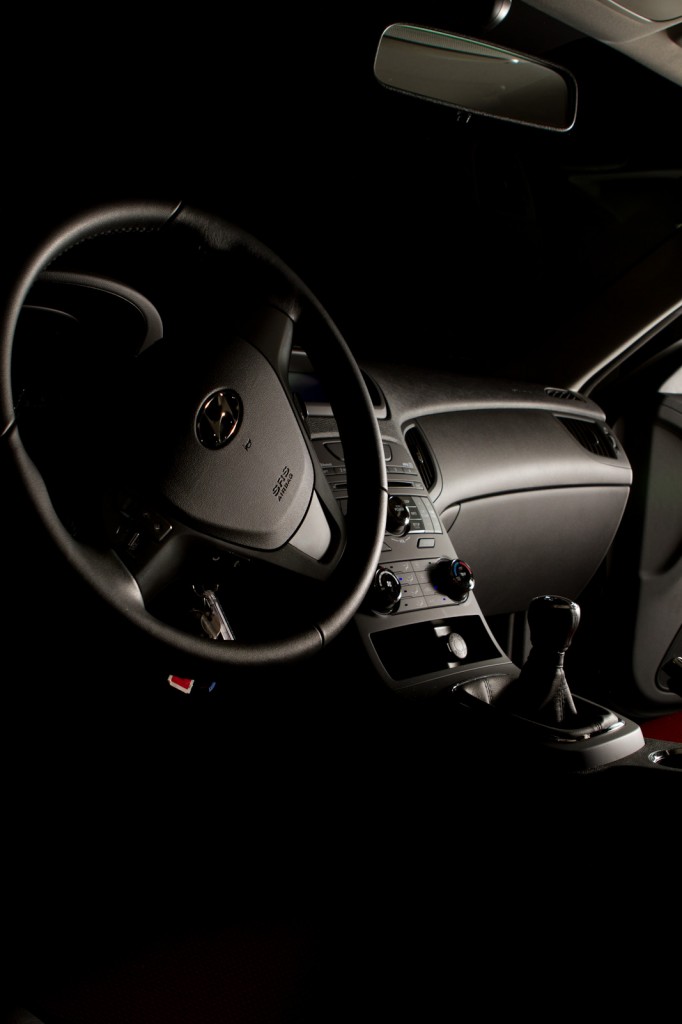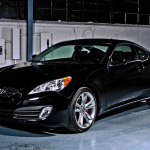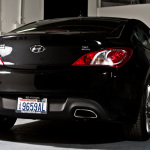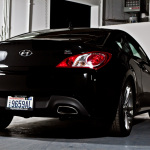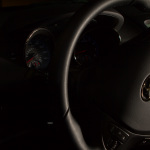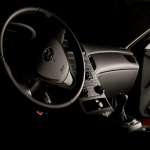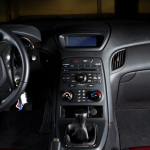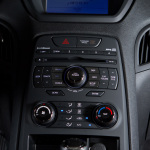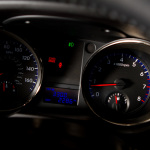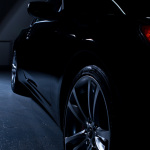It’s time to talk about choices. Remember in Trainspotting when Ewan Macgregor is going on about choice? Choose this, choose that and the other? While his diatribe bookends the character’s tumultuous heroin decent, what the rest of us who aren’t on smack can take away from this is that a potential and life-changing side effect in engaging in choice is regret. I hate to be the one to break it to you, but there will come a time where at some point, for something big or small, it will be up to you to make a decision. When it comes to cars, it’s a big one, and having spent some time with the Hyundai Genesis Coupe 3.8 R-Spec, I have the feeling there are many new drivers out there who now must be kicking themselves.
“Why buy a Civic?” was the broad question I posited to a group of enthusiasts with varying tastes. It was purposely blunt, and after streams of opinions from all sides washed over, I asked my real question: Without vilifying those who prefer front wheel drive, people looking for a sporty coupe will immediately be drawn to a car with rear wheel drive. As these are generally priced in higher brackets, what are the options for a driver looking for an affordable rear wheel drive coupe?
The well-received Genesis Coupe was designed to answer that question. Improving on that, The “R-Spec” brings to the Genesis Coupe a number of performance tweaks as standard, like a track-tuned suspension consisting of higher-rate coil springs, higher-control shock absorbers, 25mm front stabilizer bar, 22mm rear stabilizer bar and a front strut brace. You also get 19-inch alloy wheels, Brembo brakes with 13.4-inch ventilated front rotors, 42mm four-piston fixed front calipers, 13.0-inch ventilated rear rotors, and 32mm+28mm four-piston fixed rear calipers. A limited slip differential is also standard, and also camber adjustment bolts can be installed at the dealer. There’s been some fat-trimming too, like removal of the chrome interior accents and automatic headlight systems. In short, it’s the ” I mean business” trim.
The Genesis Coupe still retains its haunch rear styling and z-shaped profile. The Red calipers of the R-spec set it apart from the other versions as well as the badging. The Front’s distinct fascia, with headlamp-integrated signal lights and low sitting vents, give the Genesis Coupe a wry character like it’s up to no good. That’s fine, because most of the time, it hopefully isn’t.
Beneath all this is the 3.8 L DOHC V6 that brings 306 hp to the table, with 266 lb-ft of torque. Hyundai purports a 0-60 of 5.5 seconds, which turns out to be fairly accurate. The Torque comes alive in the low-mid range, giving you plenty to work with for whatever you put it through. It’s connected by a 6-speed close ration manual, as an automatic isn’t available for the R-Spec. You’ll also be looking at a 17-26 city–highway mpg rating for this car, but it’s not as punishing as it sounds, and we averaged around 19-20 mpg without being particularly cautious about it.
Having all this at your disposal is all well and good, but what’s the result when put to use? Let’s get the childishness out first: this car is very chuckable. You won’t impress with a smokey burnout, but the desire to put it sideways around a corner is strong. In a controlled area, the Genesis Coupe felt balanced and easy to control as it did whatever we wanted it to do around our mock corner made of cones. Taking a bend at speed, the car adheres well to the road. As the visibility us good and road feel is accurate, you are connected to any maneuvers you may be attempting, so the sensation of speed isn’t dulled. With downshifting, it’s been noticed that there is little engine braking in the Genesis Coupe, and that remains so, but it depends on where you are in the rev band. It’s subtle, so instead of being non-existent, it’s more of a nuance. The difference is noticeable when you refrain from heel-toe shifting; not only is the smoothness gone, the car just feels slightly off.
The driving position in the Genesis Coupe is very satisfying, and conveys that much attention was given to getting it right. It’s very comfortable in that the driver is fitted optimally to bring out the car’s potential for performance. Visibility is excellent from every angle, even from the rear windscreen which, at a glance, might look problematic due to the height of the rear haunch, but it’s only an issue when it comes to parking. The seat bolsters the driver well while everything is within comfortable reach so that gear changes and deft maneuvers can be done without thinking twice.
Indeed, you feel so confident in the seat that, while you listen to the revs climb, it’s very easy to lose yourself in the moment and forget that highway ramps are just that, and not track corners. With the proper music, you become a driver’s seat D.J. remixing beats with tire chirps and hitting perfect shifts. Speaking of the track, having spent time in a previous incarnation in a wet autocross and now significant time with the 3.8 R-Spec, I’m confident in saying that this is a great entry-level track toy. Think about it: An enthusiast can get very easily trapped in a logic loop saying that he or she wants a fun car, but has nowhere to have fun with it, so a track day is an option, but they don’t want to ruin their daily driver, and on and on forever until they resolve that the only solution is a garage of cars for every possible occasion and a late night talk show to fund it all. With the Genesis Coupe, while it won’t be face-meltingly fast as high performance cars, will still be a blast to take around a few bends and then in a good state to get on the highway home again.
There’s not a whole lot to look at on the inside of the Genesis Coupe R-spec. You’ll find a good quantity of rubber surfaces and a smattering of hard plastic, but it ultimately results in a simple interior that doesn’t distract from the drive. The 3.8 R-spec does without any navigation screen options and leaves a monochrome LED screen to display any info you need. Much is done through the voice commands like phone pairing, and apart from that, the simple interface is uncluttered and easily accessed in the center console. Even in this paired down version of the coupe, there’s still XM satellite radio, your AM/FM standards CD and MP3 connectivity. Bluetooth pairing is also available for both phones and audio devices, allowing you to stream music without cables, if you want to keep things organized.
If looking for a little more or less than what the R-Spec has to offer, the Genesis Coup comes in 6 different trim levels, with either the 2.0 liter turbo i4 or the 3.8 V6. Our test vehicle, with its laundry list of standard features and one added extra (carpeted floor mats- $105.00), totaled out to a very competitive $26,750.00.
When the Genesis Coupe debuted, I commented on how I felt it was a very good start for a car that has the potential to develop into something great, and the R-Spec is a good example of that evolution, and I have a feeling Hyundai has a few things up their sleeve for the future. The Genesis sedan has just been upgraded to a 5.0 V8, and if asked if the 3.8 L GDI V8 might end up in the Coupe, product leaders kind of look at each other and smile. With all this in mind, it brings us back to choice. Narrowing it down to rear wheel drive, for this price range, the options available to us here in the U.S. is whittled to the V6 ranges of American muscle cars, which are generally not esteemed for their handling, sporty as they may be. Be it choosing one of these, or reaching for that higher price bracket, the Genesis Coupe 3.8 R-Spec will be the car you will constantly see at the autocross or around town testing your ultimate decision.
Words By – Alex Kalogiannis
Photos By – Jon Rouzier

